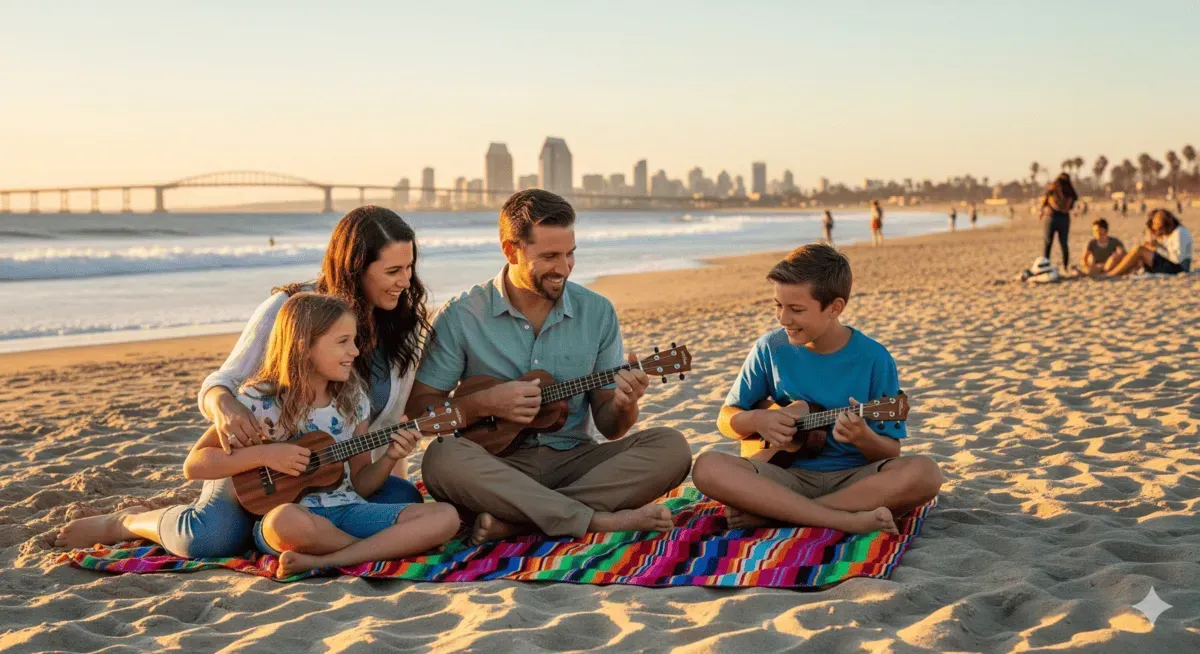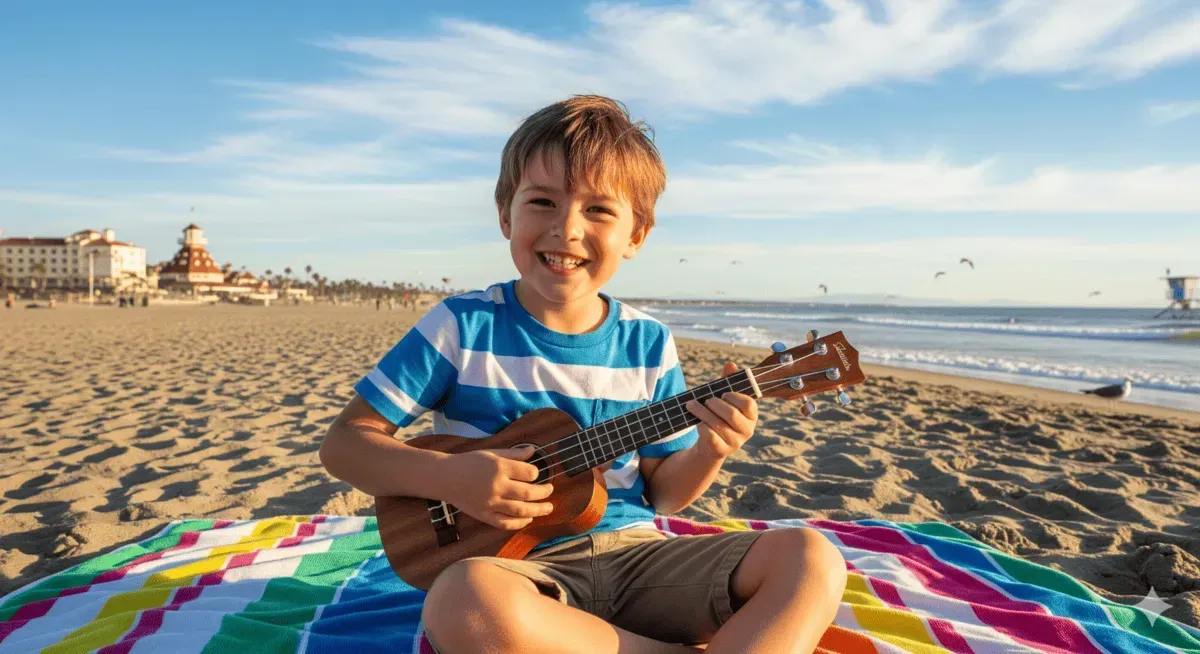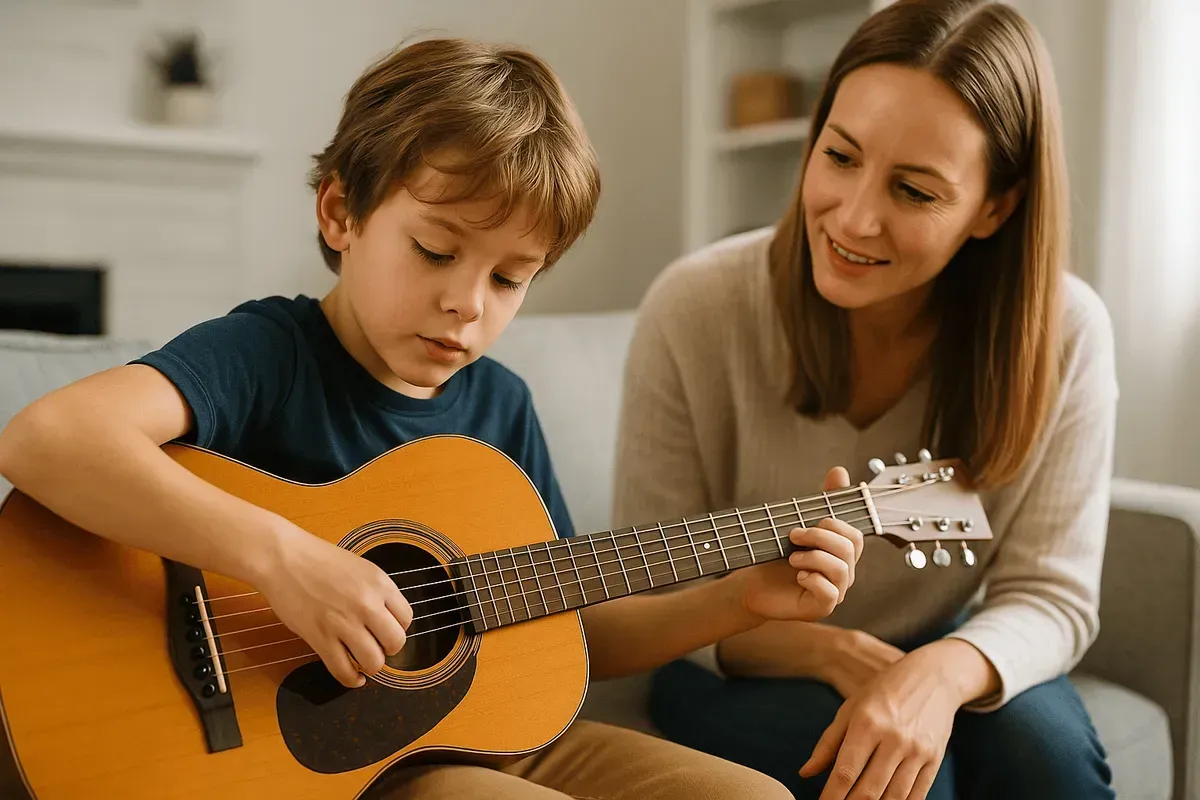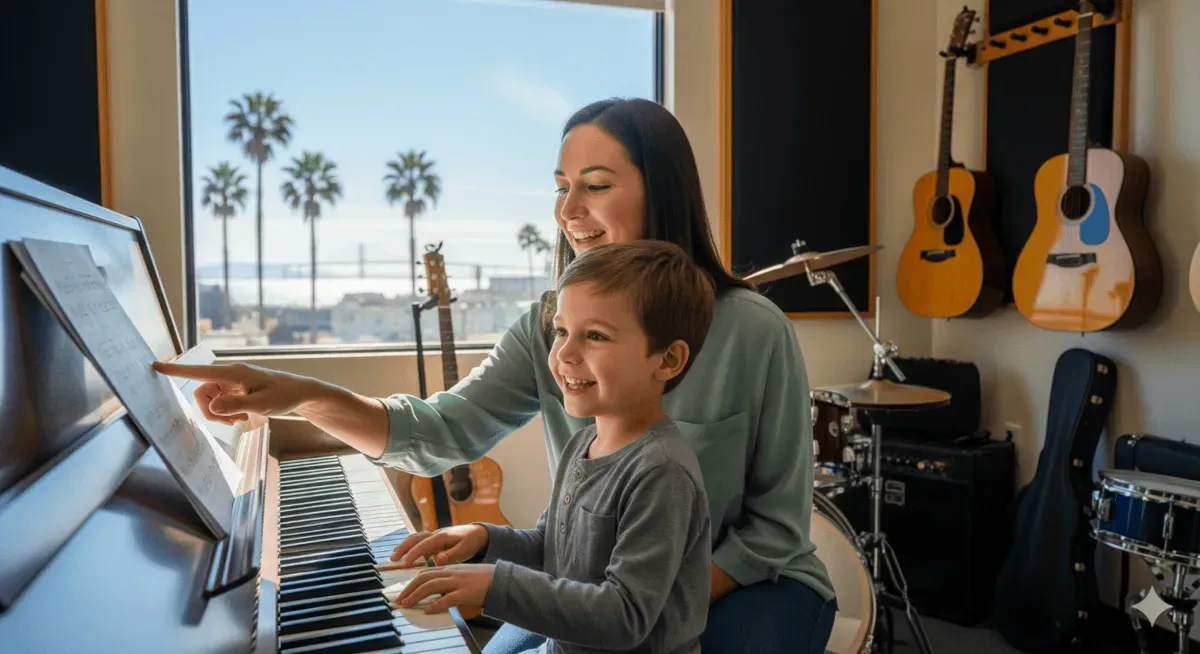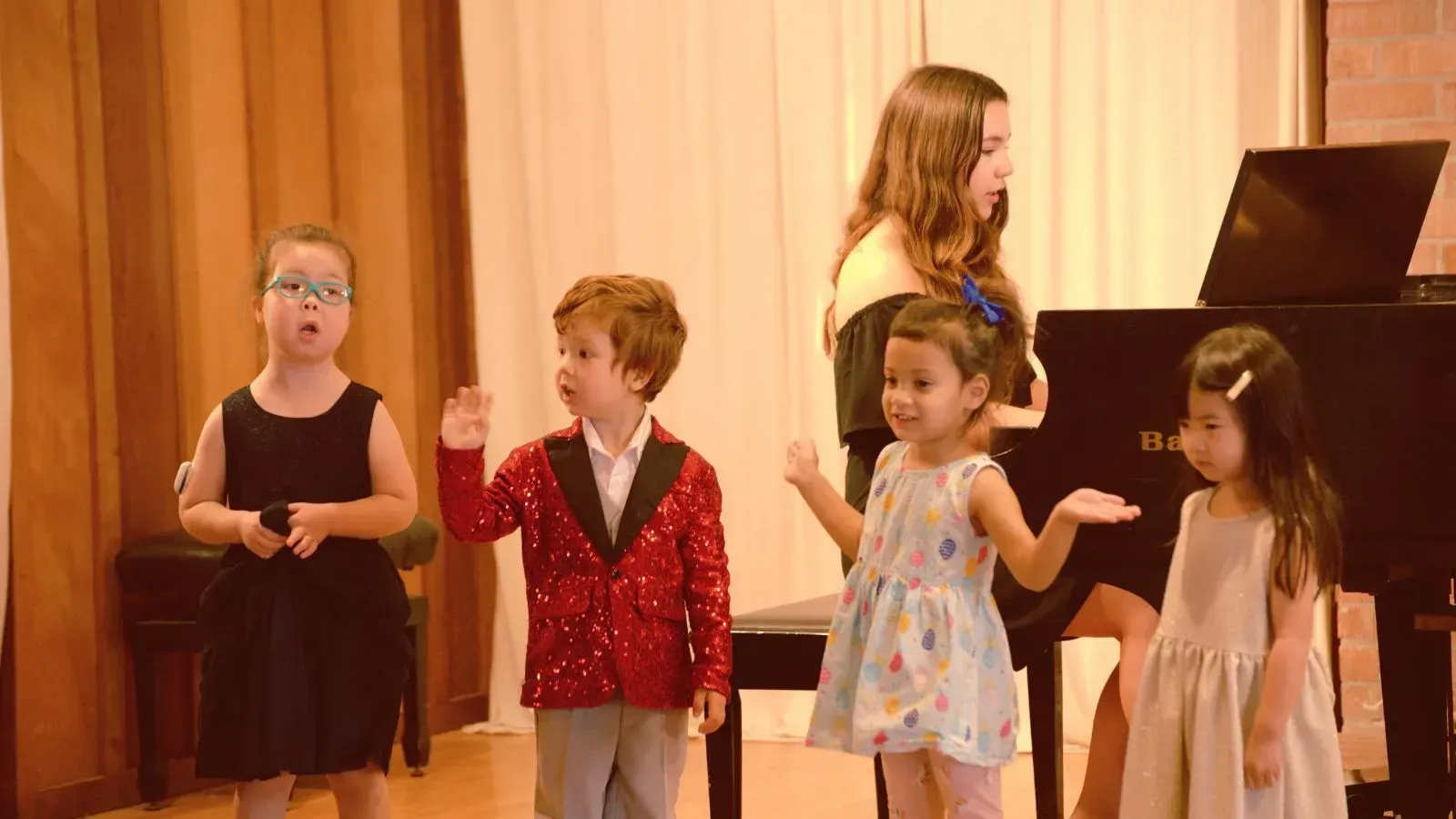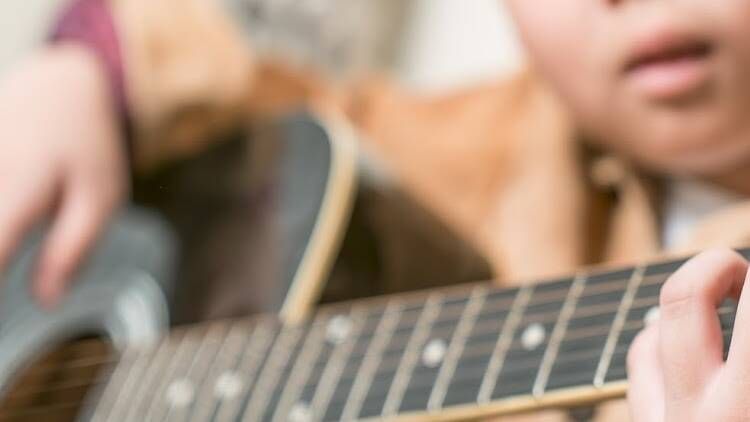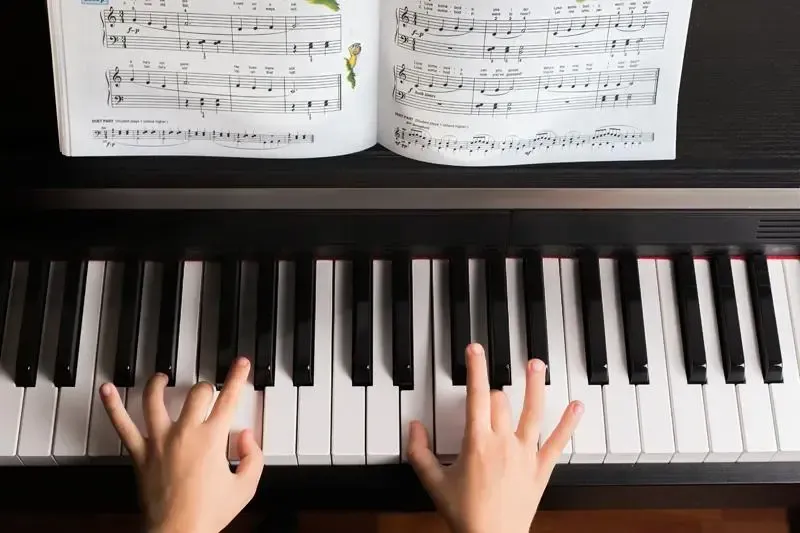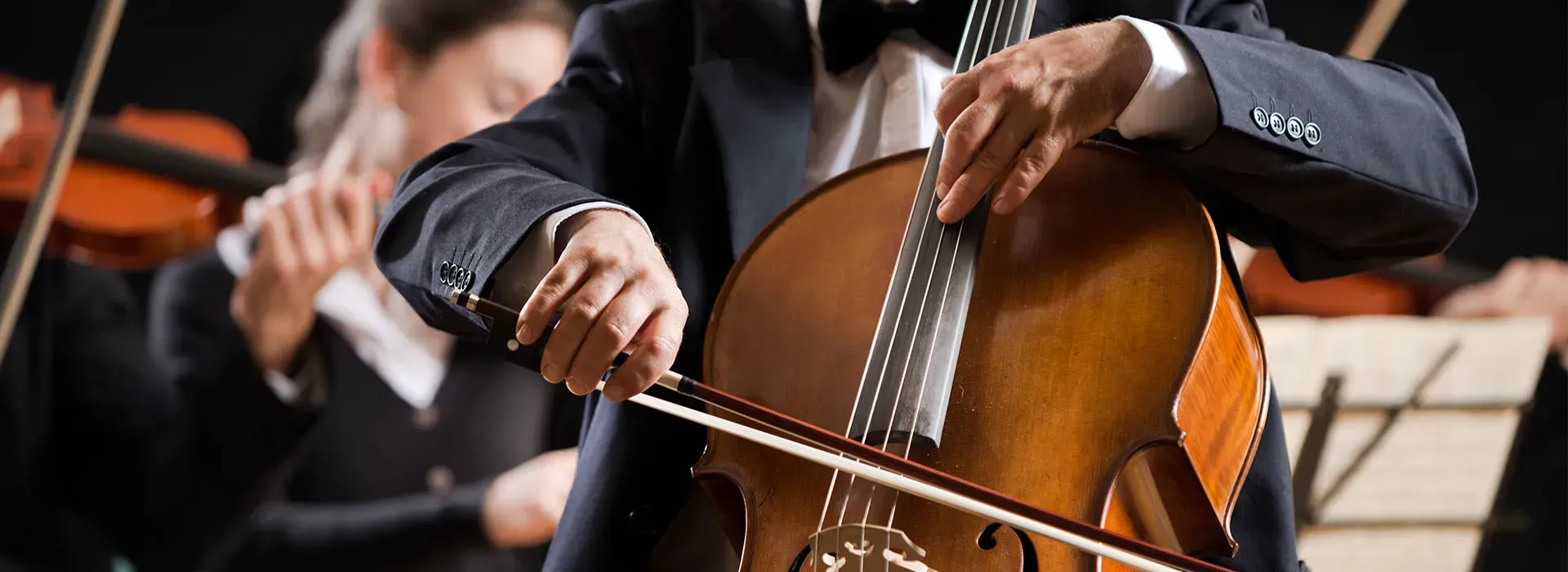From Beginner to Pro: A Guide to Bass Lessons for Kids in San Diego
So, your kid's caught the bass bug, huh? Maybe they've been air-slapping along to Flea's funky riffs or dreaming of laying down thunderous lines like Geddy Lee. Whatever sparked their interest, you're in the right place to turn that musical spark into a roaring flame.
Let's dive into the world of bass lessons in San Diego and set your little groove master on the path to stardom!
Why Bass? (Because Four Strings are Cooler than Six)
First things first – why bass? Well, besides being the coolest instrument in the band (don't tell the guitarists), bass is:
- The backbone of the band (no pressure, kids!)
- Great for developing rhythm and timing
- Often easier for beginners to pick up than guitar
- A ticket to being in high demand (every band needs a bassist!)
Finding the Right Teacher (It's Like Musical Match-Making)
When you're on the hunt for bass lessons in San Diego, finding the right teacher is crucial. A great San Diego music teacher can make all the difference between "Mom, do I have to practice?" and "Mom, can I practice longer?" Here's what to look for:
Experience teaching kids (because teaching a 10-year-old is way different from teaching a 30-year-old)
- A fun, patient approach (bass should be a blast, not a chore)
- Flexibility in teaching styles (because every kid learns differently)
- A solid rep in the local music scene (ask around – word of mouth is golden)
Getting Started: The Basics
Choosing the Right Bass
Before diving into lessons, you'll need a bass. But don't rush out and buy the fanciest one you see! Consider:
- Size (a full-size bass might dwarf your little one)
- Budget (start modest – you can always upgrade later)
- Electric vs. Acoustic (electric is usually easier for beginners)
The First Few Lessons
In the beginning, a San Diego music teacher will likely focus on:
- Proper hand positioning (to avoid the dreaded "bass claw")
- Basic plucking techniques (it's all in the fingers, baby!)
- Simple scales and easy songs (cue "Another One Bites the Dust")
Progressing: From Newbie to Groovy
As your kid gets more comfortable with their instrument, their bass lessons in San Diego will start to cover:
Technique Building
- Fingerstyle vs. pick playing
- Slap and pop techniques (for when they're ready to bring the funk)
- Reading music and tabs
Music Theory (Don't Let Them Run Away Screaming)
- Understanding scales and chord progressions
- Learning how bass fits into different musical styles
- Developing an ear for harmony
Jamming and Collaboration
- Playing with backing tracks
- Joining student ensembles or bands
- Participating in recitals (time to shine!)
Keeping the Groove Going: Tips for Parents
Your role? Be the roadie, the cheerleader, and the audience all rolled into one!
- Set Up a Practice Space: Carve out a comfy, quiet spot for practice. And maybe invest in some soundproofing (your neighbors will thank you).
- Establish a Routine: Consistent practice is key. But keep it fun – 15 minutes of engaged practice beats an hour of grudging plunking.
- Be Supportive, Not Pushy: Encourage practice, but don't turn into a drill sergeant. Music should be joyful, not a chore.
- Expose Them to Live Music: Take advantage of San Diego's vibrant music scene. Seeing pros in action can be hugely inspiring.
- Consider Group Lessons or Camps: Many teachers offer group sessions or summer camps. It's a great way to meet other young bassists and have fun while learning.
Taking It to the Next Level
As your kid progresses, they might show interest in:
- Joining school bands or local youth orchestras
- Recording their own music
- Exploring different genres (jazz, funk, rock – the bass fits everywhere!)
Summing Up
Learning bass isn't just about music. It teaches discipline, boosts confidence, and provides a creative outlet. Plus, it's a skill they'll have for life – imagine how cool they'll be at college parties!
So, there you have it – your roadmap to turning your kid into a bass-playing prodigy (or at least someone who can hold down a groove). With the right teacher, consistent practice, and a supportive environment, your child will be slapping and popping their way to musical greatness in no time.

